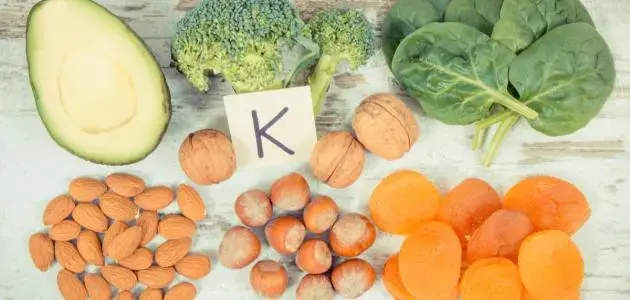Let’s Talk About Vitamin K
Vitamin K is a fat-soluble vitamin that your body stores in places like your liver, brain, heart, pancreas, and bones. It was actually discovered by accident between the 1920s and 1930s when animals on a calorie-restricted diet started showing signs of excessive bleeding. Turns out, vitamin K plays a big role in blood clotting.
There are a few types of vitamin K, but the two main ones we get from food are:
- Vitamin K1 (Phylloquinone): Found mostly in leafy greens and makes up about 75–90% of our vitamin K intake.
- Vitamin K2 (Menaquinone): Found in fermented foods and animal products, and it has several subtypes based on its chemical structure.
Your gut bacteria can also make vitamin K, but antibiotics can wipe those out, which may lower your vitamin K levels.
Top Benefits of Vitamin K (with Varying Levels of Evidence)
Clearly Effective
- Prevents bleeding in newborns: Babies are born with low vitamin K, which can cause a rare but serious bleeding disorder. A vitamin K1 shot is typically given right after birth to prevent this.
- Helps with bleeding caused by low prothrombin: Vitamin K1 can reduce bleeding in people with low levels of this blood protein, sometimes caused by medications.
- Treats inherited clotting factor deficiencies: Some people have rare genetic disorders where clotting factors don’t work properly without vitamin K. Taking it orally or by IV helps prevent bleeding episodes.
- Reverses warfarin side effects: Warfarin is a blood thinner, and vitamin K1 can be used to counteract its effects in emergencies—but only under medical supervision.
Possibly Not Effective
- Reducing brain bleeding in premature babies: There’s no solid proof that vitamin K can prevent this type of bleeding in preemies, even when the mom takes supplements during pregnancy.
More Research Needed
- Boosting athletic performance: Early studies suggest K2 might help heart function during workouts.
- Supporting bone health in kids with beta-thalassemia: K2, along with calcium and vitamin D, may help boost bone mass.
- Preventing cataracts: Some research links higher K2 intake with a lower risk of cataracts, but more studies are needed.
- Heart health: K2 may help prevent calcium build-up in arteries, which is linked to heart disease. K2 seems to be more effective than K1 in this area.
- Helping people with cystic fibrosis: These patients often have trouble absorbing fat-soluble vitamins like K, and supplements may help restore healthy levels.
- Lowering cholesterol in dialysis patients: Some evidence suggests K2 can reduce cholesterol in this group.
- Soothing rheumatoid arthritis: Early studies show that combining K2 with arthritis meds may help reduce joint swelling better than meds alone.
- Lowering cancer risk: K2 might help reduce the risk of certain cancers, including liver, prostate, breast, and lung cancer, though more research is needed to confirm this.
Other Potential Uses (Not Yet Proven)
- Reducing bloating
- Fading bruises
- Improving spider veins
Where to Get Vitamin K
Food Sources
The best way to get vitamin K is through your diet. Here are some great options:
- Leafy greens like kale, spinach, collard greens, romaine, parsley, and Swiss chard
- Cruciferous veggies like Brussels sprouts, broccoli, cauliflower, and cabbage
- Fish, liver, meat, and eggs
- Whole grains (contain smaller amounts)
Supplements
You’ll find vitamin K in many multivitamins, or as stand-alone supplements. They usually include either K1 or K2. There’s also a synthetic form called K3, but it's not used anymore due to potential liver toxicity found in old lab studies.
Recommended Daily Intake
| Age Group | Recommended Intake (mcg) |
|---|---|
| Newborns (0–6 months) | 2 |
| Babies (7–12 months) | 2.5 |
| Kids (1–3 years) | 30 |
| Kids (4–8 years) | 55 |
| Kids (9–13 years) | 60 |
| Teens (14–18 years) | 75 |
| Men (19+) | 120 |
| Women (19+) | 90 |
| Pregnant/Breastfeeding (14–18 years) | 75 |
| Pregnant/Breastfeeding (19+) | 90 |
Vitamin K Deficiency
It’s rare for healthy adults to have a vitamin K deficiency since the body makes it and it’s found in lots of foods. But if it does happen, it can lead to serious bleeding because the blood won’t clot properly.
Is It Safe to Take?
Generally, yes. Vitamin K1 and K2 are safe when taken in recommended amounts, either orally or through an IV. Side effects are rare, but some people might experience stomach upset or diarrhea.
Special Considerations
- Pregnant and breastfeeding women: Safe if taken in proper amounts. Avoid large doses without medical advice.
- Kids: Vitamin K1 is safe by mouth or injection.
- People with diabetes: K1 may lower blood sugar, so levels should be monitored closely.
- People with kidney issues: High doses could be risky, especially during dialysis.
- People with liver disease: High doses might worsen clotting problems.
- Low bile production: May need bile salt supplements to absorb vitamin K properly.
Medication Interactions
- Warfarin: Major interaction. Since warfarin thins the blood and vitamin K helps it clot, they work against each other. Only take them together under a doctor’s supervision.
- Aspirin: Can increase bleeding risk. Check with your doctor if you’re on vitamin K supplements.
- <strong
Leave a comment
Your email address will not be published. Required fields are marked *




